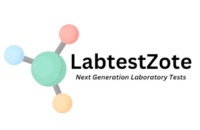1-3)-β-D Glucan Level Test
Test Description
The 1-3)-β-D Glucan Level Test is a blood test designed to detect invasive fungal infections (IFIs) by measuring the presence of (1→3)-β-D-glucan, a polysaccharide component found in the cell walls of many pathogenic fungi such as Candida, Aspergillus, and Cryptococcus.
This test is important in the early identification of serious systemic fungal infections, particularly in patients with compromised immune systems, such as those undergoing chemotherapy, organ transplantation, or living with HIV/AIDS.
Invasive fungal infections can be life-threatening and are often difficult to diagnose early because their symptoms overlap with other infections. Traditional diagnostic methods like tissue biopsies or fungal cultures can be invasive, slow, and sometimes inconclusive.
The 1-3)-β-D Glucan Level Test offers a non-invasive, rapid, and highly sensitive alternative by detecting fungal cell wall components circulating in the blood. This helps clinicians initiate targeted antifungal therapy sooner, improving patient outcomes and reducing the unnecessary use of broad-spectrum antifungal drugs, which can have significant side effects and contribute to antimicrobial resistance.
1-3)-β-D Glucan Level Test is widely used in hospitals and clinical settings worldwide as an important tool to detect fungal infections early and guide treatment decisions, especially in critically ill or immunocompromised patients.
Indications of the Test
The 1-3)-β-D Glucan Level Test is indicated in several clinical scenarios, including:
-
Suspected invasive fungal infections in immunocompromised patients: Those undergoing chemotherapy, organ transplantation, or living with HIV/AIDS are at higher risk of developing IFIs.
-
Patients in intensive care units (ICUs): Patients with unexplained fevers, prolonged antibiotic use, or other risk factors for fungal infections benefit from this test to help identify fungal causes.
-
Monitoring high-risk patients: Individuals with prolonged neutropenia, immunosuppressive therapy, or indwelling catheters can be monitored for early signs of fungal infection.
-
Guiding antifungal therapy: 1-3)-β-D Glucan Level Test assists healthcare providers in deciding when to start, adjust, or discontinue antifungal medications, reducing unnecessary exposure and invasive diagnostic procedures.
Patient Preparation/Instructions
-
No special preparation or fasting is required before undergoing the test.
-
Inform your healthcare provider about any medications, supplements, or recent medical procedures, as these can sometimes affect test results.
-
Blood samples will be collected by a healthcare professional following standard procedures.
-
Follow any specific instructions provided by your healthcare provider regarding the timing or conditions of the blood draw.
Typical Reference Values
| β-D Glucan Level (pg/mL) | Meaning |
|---|---|
| < 60 | Negative—low likelihood of fungal infection |
| 60 – < 80 | Indeterminate—Requires further evaluation |
| ≥ 80 | Positive—suggests probable invasive fungal infection |
Interpretation Notes:
-
Positive results should always be interpreted alongside clinical symptoms, imaging, and other laboratory findings.
-
False positives may occur due to recent hemodialysis, certain blood products, exposure to glucan-containing materials during surgery, or contamination.
-
A negative result does not completely exclude fungal infection, especially in localized infections.
Turnaround Time
Results for the 1-3)-β-D Glucan Level Test are typically available within 24 to 48 hours after the blood sample is collected. This rapid turnaround time allows healthcare providers to make timely clinical decisions regarding antifungal treatment, which is crucial for improving patient outcomes and reducing complications associated with invasive fungal infections.
How To Order 1-3)-β-D Glucan Level Test in Kenya
Please click the ‘Order Test’ button and put the immunofluorescence analysis in Michel’s medium in your cart.
You are welcome to visit our laboratory in Kilimani, Nairobi.
This will initiate the process for obtaining your test.
